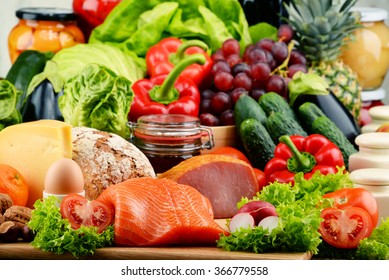Food- The Energy For Body, Dietary Harmony For Soul: Rest Is What We Call “Meaty Or Vegan”

Mobilenews24x7 Bureau
It is said that, the ones those who are vegetarians exhibit lower-density lipoprotein cholesterol levels, lower blood pressure and, thankfully, lower rates of hypertension and type 2 diabetes than meat eaters.
But sometimes opinions vary. For which, it is essential for a medically based empirical analysis to ascertain the efficacies.
According to one observation, vegetarians also tend to have a lower body mass index, lower overall cancer rates and lower risk of chronic disease. That is the general assumption and corroborated by doctors even.
Fruitarian or vegan is a concept deeply rooted in Indian psyche as vast majority of adults in India religiously follow the norms of avoiding meat in the diets.
A Pew Research Centre survey shows that, most Indians do not stay away from meat while 39% claim themselves as vegetarians in contrasts to about 80 percent Indians just have control over meat eating.
Even on the consumption of non-veg items in different religions they avoid consumption of meat etc on certain days like Sundays or Tuesdays and Thursdays.
Food Is Not Just To Fill The Stomach
In English the translation goes like – “O Mother Annapurna, You, Who are always Full (with the gift of Food and Blessings), You Who are the Beloved of Shankara, …O Mother Parvati, Please grant me the Alms of Your Grace, to awaken within me Spiritual Knowledge and Freedom from all Worldly Desires”.
To say it simple, food is not just to fill the stomach, an act to relish hunger and a plater for the taste-buds. This is what Hinduism says about food, food habits close-knit with religious and spiritual life style of Indians as whole. All Religions and spiritual Theology do have their own food pattern and restrictions.
A healthy life-style do need a regular yet balanced food habit, irrespective of age, sex, caste, religion and geographical boundary. Here comes the eternal debate on the question, either you are vegan or non-vegan.
81% of Indian adults do follow some restrictions on meat in their diet. However, most Indians do not abstain from meat and only 39%, in particular describe themselves as “vegetarian”.
There are interesting contrasts as regards intake of meat. While Hindus come in between 44% on no intake of meat, the Jains have a whopping 92 % who do not eat meat, and Muslims account for 8 percent vegans and the Christians fall within 10 percent.
Several Jains, along with meat, do not consume root vegetables such as garlic and onions to avoid destroying the entire plant, which is seen as a form of violence in Jain theology. Even some Hindus (Brahmins in Particular) do follow these strict vegetarian food pattern (like Sankranti and the 11th and 14th day of Waxing Moon or Shukla Paksya).
The survey shows that among Hindus and Sikhs, nearly one-in-five say they do not eat root vegetables and thorny vegetables (21% and 18%, respectively). Hindu vegetarians are evenly divided between those who eat root vegetables and those who do not.
Fasting, An Indian Dietary Practice
Fasting is another common dietary practice in India. Atleast three-quarters of Indians overall (77%) fast, including about eight-in-ten or more among Muslims (85%), Jains (84%) and Hindus (79%). Smaller majorities of Christians and Buddhists fast (64% and 61%, respectively), while Sikhs are the least likely to fast (28%), according to Pew Research Centre Survey. Even Physicians do prescribe a systematic fasting for cleansing toxic elements from body.
Moreover, Indians are more likely to say that following dietary restrictions is a requirement for religious identity than to say that belief in God and prayer are essential. Among Muslims, Sikhs and Jains, even greater shares say that following dietary rules is essential to religious identity: 77% of Muslims say a person cannot be Muslim if they eat pork, compared with smaller shares who say this about a person who does not believe in God (60%) or never prays (67%).
More than eight-in-ten Sikhs (82%) and Jains (85%) say that a person cannot be truly a member of their religion if they consume beef. Buddhists are split on the issue, with about half expressing that someone cannot be a Buddhist if they eat beef according to the research.
The eternal truth or the Go of the World is like, “However much has been taken in life, more should be returned”. May be in form of prayer or share. That’s why people around the world of any religion, do share personal belongings and food on auspicious/special days of their life and religious calendar.






